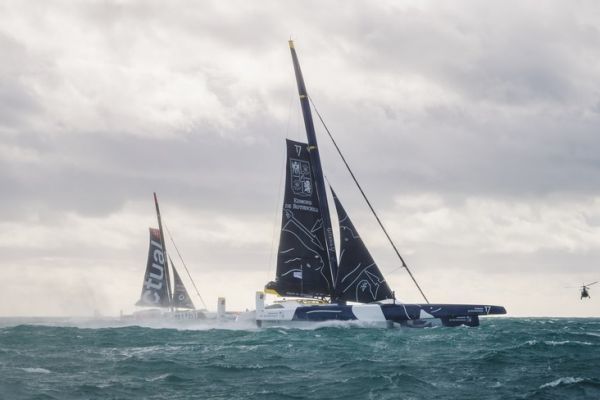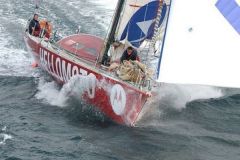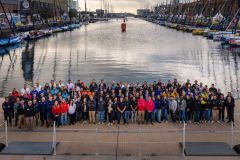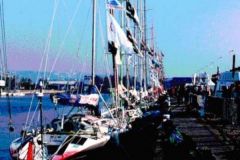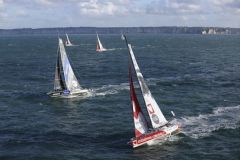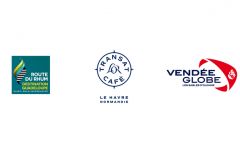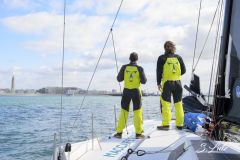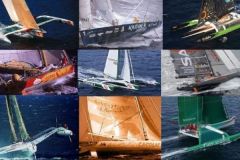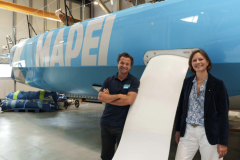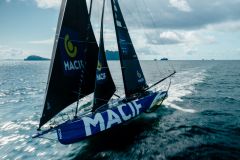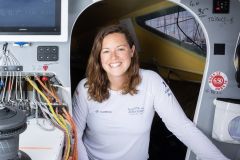A rule change for greater fairness and sport
The announcement went almost unnoticed during the first few days in Le Havre. And yet, it changes a lot: on this 17th edition of the Transat Café L'Or, the skippers of the Ultim and Ocean Fifty multihulls will have to do without onshore weather routing. In concrete terms, this means that no team member will be able to assist them from land to choose their route during the crossing. All tactical decisions will be taken on board, in real time.
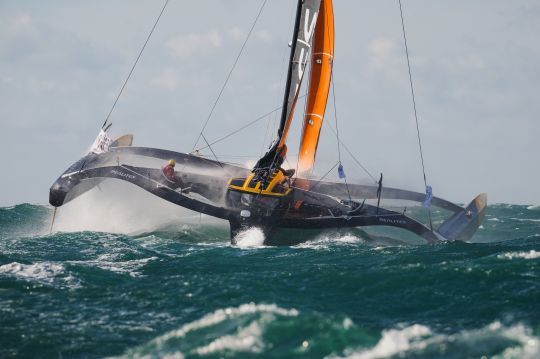
A development welcomed by sailors
For Armel Le Cléac'h (Banque Populaire), title-holder in the Ultim class, this evolution is logical: " As a duo, we're able to handle the weather on our own. It makes the exercise even more complete. " The Breton skipper sees this rule as a return to the fundamentals of ocean racing: autonomy, sky reading and seafaring instinct.
Tom Laperche (SVR-Lazartigue) strikes the same tone, citing a favorable technological context: "We're in a good position Today, we have better onboard connections and easier access to weather data. What used to require a lot of work ashore is now feasible at sea." The young skipper is even "completely in favor" of this tactical autonomy.
More varied strategic options
Without a router to standardize decisions, the race could see very different options emerge depending on the duos. " Before, everyone went in the same direction. Now, we may have more daring attempts... and more mistakes too "comments Julien Villion, co-skipper of Anthony Marchand on Actual.
For Anne-Claire Le Berre (Upwind by MerConcept), this rule will above all rebalance roles on board: "This gives the sailors more space. What's more, it reduces the cost of an external routing cell. "
Greater autonomy, but an added mental burden
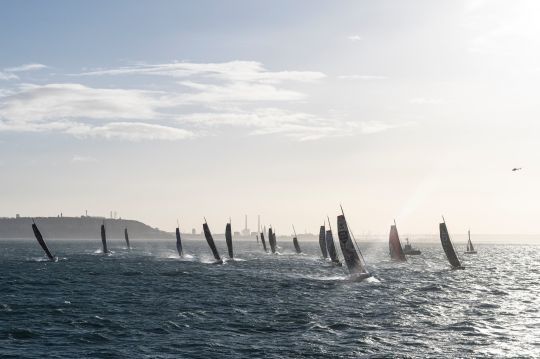
On the Ocean Fifty side, some sailors are more cautious. "These are physically and technically demanding boats. Add to that an extensive weather watch, and it's an extra burden" explains Erwan Le Roux (Koesio). He reminds us that weather analysis can quickly absorb time, to the detriment of piloting or recovery.
Thibaut Vauchel-Camus (Solidaires en Peloton) agrees: "You have to avoid drowning in files. Looking for the right option is fine, but you can't forget to eat, sleep or trim your sails."
A rethought on-board organization
So all the duos adapted. Distribution of tasks, weather training and watch routines became central elements of preparation. " I'll take care of it "says Armel Le Cléac'h, while Anne-Claire Le Berre points out that she entrusted this aspect to herself, leaving the performance to her co-skipper Elodie-Jane Mettraux.
At Koesio, Erwan Le Roux structured the approach: " I collect the data, sort it, analyze it, then share it with Audrey (Ogereau)."
A more open, more human deckchair
With just a few days to go before the start, the mood is clear: weather forecasting is once again becoming a marine art. Less automated analysis, more instinct. Fewer certainties, more choices to be made, alone or in pairs. This rule gives new grist to the mill of those who love the open sea for what it is: a space of uncertainty to be tamed.
"100% of the choices will come from us, so it's bound to count." says Armel Le Cléac'h, "It's going to make the race even more interesting."

 /
/ 